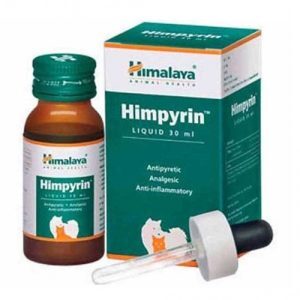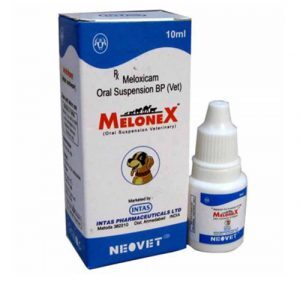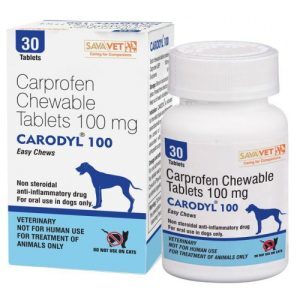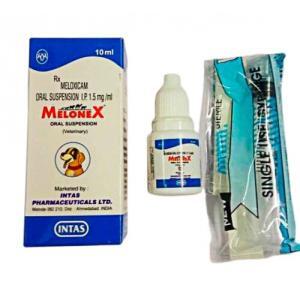Table of Contents
Pain can be harmful to dogs, just as it can be harmful to humans. Like all animals, dogs experience pain as a natural response to injury, illness, or physical trauma. It serves as a warning signal to avoid further harm and prompts actions to protect the affected area. Pain can significantly diminish a dog’s quality of life. It affects their ability to perform daily activities, play, eat, and even interact with their human companions. Dogs in pain may become withdrawn, depressed, or display changes in behavior. Dog owners must be vigilant and attentive to their pets’ pain signs and do everything possible for the dog’s pain control.

How Do NSAIDs Work?
NSAIDs, or nonsteroidal anti-inflammatory drugs, are a class of medications commonly used to relieve pain, reduce inflammation in dogs, and lower fever. They work by inhibiting the activity of an enzyme called cyclooxygenase (COX), which plays a crucial role in producing prostaglandins.
Prostaglandins are chemical compounds involved in various bodily processes, including inflammation, pain perception, and body temperature regulation. There are two main types of cyclooxygenase enzymes: COX-1 and COX-2.
- COX-1: This enzyme is constitutively expressed in many tissues and has several vital functions, including protecting the stomach lining, promoting normal blood clotting, and maintaining kidney function.
- COX-2: This enzyme is primarily induced at sites of inflammation and injury. It produces prostaglandins that contribute to pain, swelling, and inflammation.
Depending on the specific drug, NSAIDs work by varying degrees of inhibiting COX-1 and COX-2 enzymes. By blocking COX enzymes, NSAIDs reduce the production of prostaglandins, which leads to the following effects:
- Pain Relief: Prostaglandins sensitize pain receptors in dogs on pain meds, making them more sensitive to painful stimuli. By reducing prostaglandin production, NSAIDs can help alleviate pain and provide relief.
- Anti-Inflammatory Effect: Inflammation is a normal immune response to injury or infection, but excessive inflammation can lead to pain, swelling, and tissue damage. By inhibiting COX-2 and reducing prostaglandin production, NSAIDs help decrease inflammation.
- Fever Reduction: Prostaglandins play a role in regulating body temperature. By blocking COX-2 and reducing prostaglandin production, NSAIDs can help lower fever in individuals with febrile conditions.
While NSAIDs are effective in inflammation and pain management in dogs, they can also have side effects, particularly when misused or used for extended periods. Certain dogs, such as those with preexisting medical conditions or taking other medications, may be more susceptible to these side effects.
Always follow the recommended dosage and duration a veterinarian prescribes when using NSAIDs. Consult your veterinarian if you have any concerns or experience adverse effects while taking NSAIDs.
What Types of Pain Do Dogs Have?
Dogs, like humans, can experience various types of pain, which different conditions and injuries can cause. Some common types of pain that dogs may experience include:
- Arthritis Pain: Arthritis is a common condition in older dogs and can also affect some younger ones. It causes inflammation and degeneration of the joints, leading to pain, stiffness, and reduced mobility.
- Neck Pain: Neck pain in dogs can be caused by various factors, including muscle strain, cervical disc disease, or injuries to the neck area. Dogs may have difficulty moving their necks and may show signs of discomfort when touched or during certain movements. You may ask your veterinarian about dog neck pain home treatment or natural over-the-counter muscle relaxers for dogs.
- Back Pain: Back pain can result from injuries, disc problems, muscle strain, or other spinal issues. Dogs with back pain may have difficulty walking, be reluctant to jump or climb stairs and show signs of discomfort or sensitivity when their back is touched. They may need pain relief for the dog’s back. Ask the veterinarian how to relieve the dog’s back pain.
- Pain After Surgery: After undergoing surgical procedures, dogs may experience pain during the recovery process. Post-operative pain management is essential to ensure their comfort and promote healing. In such situations, veterinarians prescribe pain meds for dogs after surgery.
- Muscle Pain: Muscle pain can occur due to injuries, overexertion, or underlying conditions. Dogs with muscle pain may be reluctant to move or exhibit limping, showing signs of discomfort when their muscles are touched or manipulated. Owners should provide dog sore muscles treatment, like over-the-counter muscle relaxers for dogs.
- Dental Pain: Dental issues like periodontal disease or tooth decay can cause significant pain in dogs. Signs of dental pain may include difficulty eating, pawing at the mouth, bad breath, and swollen or red gums.
- Ear Pain: Ear infections or other ear-related problems can cause pain and discomfort in dogs. Signs of ear pain may include head shaking, ear scratching, and sensitivity when the ears are touched.
- Abdominal Pain: Abdominal pain can be caused by various conditions, including gastrointestinal issues, pancreatitis, or bladder problems. Dogs with abdominal pain may show restlessness, panting, hunching, or reluctance to lie down.
- Joint Pain: Apart from arthritis, joint pain can result from injuries or conditions like hip dysplasia. Dogs with joint pain may have difficulty getting up or lying down, limp, and show signs of discomfort during physical activities. In such a situation, you need to know how to relieve joint pain for dogs.
If you notice any signs of pain or discomfort in your dog, it’s crucial to seek veterinary care promptly. A veterinarian can diagnose the underlying cause of the pain and recommend appropriate pain management and treatment of pain in dogs options to ensure your dog’s well-being and comfort.
Side Effects of NSAIDs
NSAIDs (nonsteroidal anti-inflammatory drugs) can have several side effects, particularly when misused or for an extended period. The most common side effects of NSAIDs include:
Digestive Tract
NSAIDs can irritate the lining of the digestive tract, leading to gastrointestinal issues such as:
- Stomach Ulcers: Long-term use of NSAIDs can increase the risk of developing stomach ulcers, open sores in the stomach lining or small intestine. These ulcers can cause pain, bleeding, and even life-threatening complications. Contact a veterinarian to learn how to relieve stomach pain for dogs.
- Gastritis: NSAIDs can cause inflammation of the stomach lining, known as gastritis, leading to abdominal pain, nausea, vomiting, and indigestion.
- Gastrointestinal Bleeding: NSAIDs can disrupt the blood clotting process and increase the risk of gastrointestinal bleeding, which can be severe and potentially fatal.
Liver
In rare cases, NSAIDs can cause liver damage or liver failure, particularly with prolonged and high-dose usage. Signs of liver problems may include jaundice (yellowing of the skin and eyes), abdominal pain, and changes in liver function tests.
Kidneys
NSAIDs can affect kidney function, especially in individuals with preexisting kidney conditions. Long-term use or high doses of NSAIDs can lead to reduced blood flow to the kidneys, potentially causing acute kidney injury or worsening existing kidney problems.
Other Side Effects
In addition to the above, NSAIDs may also cause:
- Cardiovascular Risks: Some NSAIDs have been associated with an increased risk of cardiovascular events, such as heart attacks and strokes, mainly when used in high doses or for prolonged periods.
- Allergic Reactions: Some individuals may experience allergic reactions to NSAIDs, manifesting as skin rashes, hives, difficulty breathing, or facial swelling. Severe allergic reactions require immediate medical attention.
- Fluid Retention and Hypertension: NSAIDs can cause fluid retention, leading to swelling in the legs, ankles, or hands. They may also elevate blood pressure in some individuals.
- Asthma Exacerbation: NSAIDs can trigger or worsen asthma symptoms in some people, leading to bronchospasm and difficulty breathing.
Use NSAIDs responsibly and under the guidance of a healthcare professional or veterinarian. People with a history of gastrointestinal, liver, or kidney problems or those on other medications should exercise caution and inform their healthcare provider before taking NSAIDs. Only give NSAIDs prescribed or recommended by a veterinarian for pets, as human NSAIDs can be toxic to animals. If you or your pet experience any side effects while using NSAIDs, seek medical attention promptly.
FDA-Approved NSAIDs for Dogs
What can dogs take for pain relief?
There are several NSAIDs that are FDA-approved medicine you can give to dogs to manage pain and inflammation associated with various conditions. These medications should only be administered under the guidance of a veterinarian. Here are some of the FDA-approved NSAIDs for dogs:
- Carprofen: Sold under brand names such as Carodyl, Cartail, Rimadyl, and Novox, Carprofen is commonly prescribed as dog arthritis pain meds or for post-operative pain.
- Meloxicam: Available under brand names such as Metacam, meloxicam is used to manage pain and inflammation associated with osteoarthritis in dogs.
- Deracoxib: Sold under the brand name Deramaxx, deracoxib is prescribed to manage pain and inflammation due to osteoarthritis or post-surgical procedures.
- Firocoxib: Marketed as Previcox, firocoxib is used to manage pain and inflammation related to osteoarthritis and musculoskeletal disorders in dogs.
- Robenacoxib: This NSAID is available as Onsior and is commonly used to manage post-operative pain and inflammation in dogs.
It’s crucial to use these medications only as a veterinarian prescribes and follow their recommendations for dosage and duration of use.
What Kind of Over the Counter Pain Reliever Is Safe for Dogs?
We recommend always consulting a veterinarian before giving any medication, non-prescription anti-inflammatories for dogs, or prescribed ones to your dog. Our choice is the following medications.
Himpyrin (Tinospora Gulancha, Sweet Flag), 30 ml
Himpyrin is a natural anti-inflammatory medication for dogs. It is an herbal antipyretic inhibiting prostaglandins synthesis, effectively reducing pet fever. Additionally, it is a natural pain med for dogs; it works by blocking the release of pain transmitters. The formulation includes Tinospora Gulancha (Guduchi), which boosts the immune system, enhancing the body’s ability to resist infections. Sweet Flag (Vacha) is also part of the composition, promoting improved blood circulation and reducing swelling. The safety of these herbal ingredients during pregnancy or nursing has not been extensively studied in dogs. It’s best to avoid using such medications during these periods unless specifically recommended by a veterinarian.
Active Ingredients
- Tinospora Gulancha (Guduchi), commonly known as Guduchi or Giloy, is a medicinal plant with a long history in traditional Ayurvedic medicine. It is native to tropical regions of India, Myanmar, and Sri Lanka. The plant is known for its various therapeutic properties and is considered an adaptogen, which means it helps the body adapt to stress and supports overall well-being.
- Sweet Flag (Vacha), scientifically known as Acorus calamus, is a perennial plant native to Asia, Europe, and North America. Its rhizomes have been widely used in traditional medicine across different cultures for their therapeutic properties.
Side Effects
Herbal medications can still carry potential risks and side effects like any other medication or supplement. While Tinospora Gulancha and Sweet Flag are generally considered safe when used appropriately, individual dogs may react differently to these herbal ingredients. Some potential side effects or adverse reactions that could occur include:
- gastrointestinal upset;
- allergic reactions;
- drug interactions;
- toxicity;
- individual sensitivity.
Benefits
- Immune System Support: Tinospora Gulancha is known for its immunomodulatory properties, which help regulate and strengthen the immune system. It aids in boosting the body’s natural defense mechanisms, making it more effective in combating infections and illnesses.
- Antipyretic Action: The herb has antipyretic properties, which help reduce fever by promoting a decline in body temperature.
- Anti-inflammatory Effects: Medication possesses anti-inflammatory properties, which can help alleviate swelling and inflammation in various conditions.
- Antioxidant Activity: The herb contains antioxidants that combat free radicals, helping to protect cells from oxidative damage.
- Improves Blood Circulation: Sweet Flag is known for enhancing blood circulation, which can benefit overall cardiovascular health.
- Analgesic (Pain-Relieving) Action: Sweet Flag has been traditionally used as an analgesic to relieve pain and discomfort in various conditions.
- Carminative and Digestive Benefits: It is believed to have carminative properties that can help alleviate digestive issues like gas and bloating.
Melonex Oral (Meloxicam)
Melonex Oral is a topical pain relief for dogs. This medication contains the active ingredient Meloxicam, which belongs to the nonsteroidal anti-inflammatory drugs (NSAIDs) class. It is commonly used in veterinary medicine to manage pain and inflammation associated with various conditions in dogs. As with any medication, it should only be used under the guidance and prescription of a qualified veterinarian.
Melonex Oral is primarily prescribed for dogs to alleviate pain and reduce inflammation. It is used to manage the pain and discomfort associated with osteoarthritis, a degenerative joint disease prevalent in older dogs. After surgical procedures, Melonex Oral can be administered to help control pain during recovery. It can be used for pain relief and to reduce inflammation in dogs with musculoskeletal injuries or conditions.
Active Ingredient
The active ingredient in Melonex Oral is Meloxicam. Meloxicam is a nonsteroidal anti-inflammatory drug (NSAID) that works by inhibiting the production of prostaglandins, which are chemicals that contribute to pain, inflammation, and fever.
Side Effects
While Meloxicam is generally considered the safest painkiller for dogs when used correctly, some dogs may experience side effects. Common side effects may include:
- gastrointestinal upset;
- change in behavior;
- decreased kidney function;
- allergic reactions.
Benefits
- Pain Relief: Meloxicam effectively alleviates pain, making it more comfortable for dogs to move and engage in regular activities.
- Inflammation Reduction: By reducing inflammation, Meloxicam helps to improve joint mobility and reduce swelling associated with various conditions.
Carodyl (Carprofen) Chewable Tablets, 25mg, 75mg, 100mg
Carodyl is a brand name for a medication containing the active ingredient Carprofen. It is available in chewable tablet form with different strengths, including 25mg, 75mg, and 100mg. Carprofen belongs to nonsteroidal anti-inflammatory drugs (NSAIDs) and is used in veterinary medicine to manage pain and inflammation in dogs. As with any medication, Carodyl should only be used under the guidance and prescription of a qualified veterinarian.
Carodyl (Carprofen) is primarily prescribed as a pain medicine for dogs with arthritis to alleviate pain and reduce inflammation associated with osteoarthritis, post-operative pain, and musculoskeletal injuries.
Active Ingredient
The active ingredient in Carodyl is Carprofen. Carprofen is a nonsteroidal anti-inflammatory drug (NSAID) that works by inhibiting the production of prostaglandins, which are chemicals that contribute to pain, inflammation, and fever.
Side Effects
Common side effects may include:
- Gastrointestinal Upset: This may manifest as vomiting, diarrhea, or decreased appetite.
- Change in Behavior: Some dogs may become lethargic or display changes in behavior when taking Carodyl.
- Decreased Kidney Function: In some cases, NSAIDs like Carprofen may affect kidney function, especially in dogs with preexisting kidney issues.
- Allergic Reactions: Dogs can experience allergic reactions to medications, leading to symptoms such as itching, hives, or facial swelling.
Benefits
- Pain Relief: Carprofen effectively alleviates pain, making it more comfortable for dogs to move and engage in regular activities.
- Inflammation Reduction: By reducing inflammation, Carprofen helps to improve joint mobility and reduce swelling associated with various conditions.
Meloxicam Oral Suspension, 10 ml
Meloxicam Oral Suspension is a medication used in veterinary medicine to manage pain and inflammation in dogs. It is a nonsteroidal anti-inflammatory drug (NSAID) and is available as a liquid formulation for easy administration.
Meloxicam Oral Suspension is prescribed for dogs to alleviate pain and reduce inflammation associated with various conditions, including:
- Osteoarthritis.
- Post-Operative Pain.
- Musculoskeletal Injuries.
Active Ingredient
The active ingredient in Meloxicam Oral Suspension is Meloxicam. Meloxicam is a nonsteroidal anti-inflammatory drug (NSAID) that works by inhibiting the production of prostaglandins, which are chemicals that contribute to pain, inflammation, and fever.
Side Effects
Common side effects may include:
- vomiting, diarrhea, or a decrease in appetite;
- some dogs may become lethargic or display changes in behavior when taking Meloxicam;
- in some cases, NSAIDs like Meloxicam may affect kidney function, especially in dogs with preexisting kidney issues;
- dogs can experience allergic reactions to medications, leading to itching, hives, or facial swelling.
Benefits
- Pain Relief: Meloxicam effectively alleviates pain, making it more comfortable for dogs to move and engage in regular activities.
- Inflammation Reduction: By reducing inflammation, Meloxicam helps to improve joint mobility and reduce swelling associated with various conditions.
Other Popular NSAIDs
There are other popular NSAIDs that may be prescribed in different situations.
Tylenol (Acetaminophen)
Can you give dog tylenol?
Tylenol, also known as Acetaminophen, is an over-the-counter pain reliever and fever reducer commonly used in humans. However, it should NOT be used in dogs or cats, as it can be toxic to their liver and cause severe damage. Giving Tylenol to pets can lead to symptoms such as lethargy, vomiting, loss of appetite, and potentially life-threatening liver failure. Always consult a veterinarian for safe and appropriate pain relief options for your pet.
Ibuprofen
Can ibuprofen hurt dogs?
Ibuprofen is a nonsteroidal anti-inflammatory drug (NSAID) used in humans for pain relief and reducing inflammation. However, it is highly toxic to dogs and cats and should NEVER be given to pets. Ingesting even small amounts of ibuprofen can lead to severe gastrointestinal irritation, kidney failure, and other serious health issues in pets. Only use medications prescribed or recommended by a veterinarian for your pet’s well-being.
Naproxen
Can you give a dog naproxen?
Naproxen is another NSAID commonly used in humans to treat pain and inflammation. Like ibuprofen, it is toxic to dogs and cats and should NEVER be given to pets. Ingestion of naproxen can cause severe gastrointestinal problems, kidney failure, and other life-threatening complications. Always keep human medications out of reach of pets and seek immediate veterinary care if accidental ingestion occurs.
Aspirin
Aspirin is an NSAID that has been used in veterinary medicine for pain relief in dogs under specific circumstances and only under the guidance of a veterinarian. However, it can have adverse effects on the gastrointestinal tract and may interfere with blood clotting. Aspirin should never be given to cats. A veterinarian must carefully determine the dosage, frequency, and duration of aspirin use in dogs to avoid potential side effects.
Paracetamol (Acetaminophen)
Paracetamol, or Acetaminophen, is similar to Tylenol and should NOT be given to dogs or cats. It can cause severe liver damage and other complications in pets. Paracetamol overdose in pets can lead to symptoms such as difficulty breathing, weakness, and even death. Always consult a veterinarian for safe and appropriate pain relief options for your pet, and never give them human medications without professional guidance.
FAQ
My Dog Is Dying, What Can I Give Him for Pain?
If your dog is dying or in significant pain, it is essential to seek immediate veterinary care. Long-term anti-inflammatory for terminally ill dogs requires professional guidance to ensure their comfort and well-being. Your veterinarian can prescribe appropriate analgesia in dogs tailored to your dog’s needs, including opioids or other palliative care measures.
How Long Does It Take for Pain Medication to Take Effect?
The time it takes for pain medication to take effect can vary depending on the type of medication and the individual dog’s metabolism. Some medications may provide rapid relief, while others might take longer. Generally, you may notice improvements within 30 minutes to an hour after administering pain medication, but following your veterinarian’s instructions regarding dosage and frequency is essential.
What Can I Give My Dog for Pain After Shots?
If your dog experiences mild discomfort or soreness after vaccinations, you can consult your veterinarian about appropriate pain relief options. They might recommend over-the-counter medications, such as Acetaminophen or specific prescription pain relievers. Never give human medicine for dog pain without veterinary approval, as some can be toxic to pets.
What Over the Counter Medicine Can I Give My Dog for Pain?
OTC anti-inflammatories for humans, such as ibuprofen, aspirin, and Acetaminophen (Tylenol), should not be given to dogs unless explicitly prescribed by a veterinarian. OTC for dog pain can be toxic to dogs and cause serious health issues. Always consult your veterinarian before giving your dog painkiller over the counter.
What Is a Good Natural Pain Reliever for Dogs?
Some natural painkillers for dogs include supplements like glucosamine and chondroitin, omega-3 fatty acids, and turmeric. Natural remedies help support joint health and reduce inflammation. However, always consult your veterinarian before using any natural supplements to ensure their safety and effectiveness for your dog’s specific condition.
What Is the Best OTC Pain Reliever for Arthritis in Dogs?
Over-the-counter pain medications like aspirin or ibuprofen are NOT recommended medicines for dogs with arthritis, as they can cause severe side effects. The best pain reliever for arthritis in dogs would be a prescription NSAID specifically formulated for dogs, such as Carprofen or meloxicam. Your veterinarian can assess your dog’s health and prescribe the most suitable arthritis in dogs treatments.
What Human Pain Relievers Are Safe for Dogs?
Generally, human pain relievers should not be given to dogs without veterinary guidance. However, some veterinarians may prescribe specific human pain medications, such as tramadol or gabapentin, for certain dog conditions. Always follow your veterinarian’s instructions and never give your dog any human medication without their approval, as dosages and safety considerations can differ between species.



























